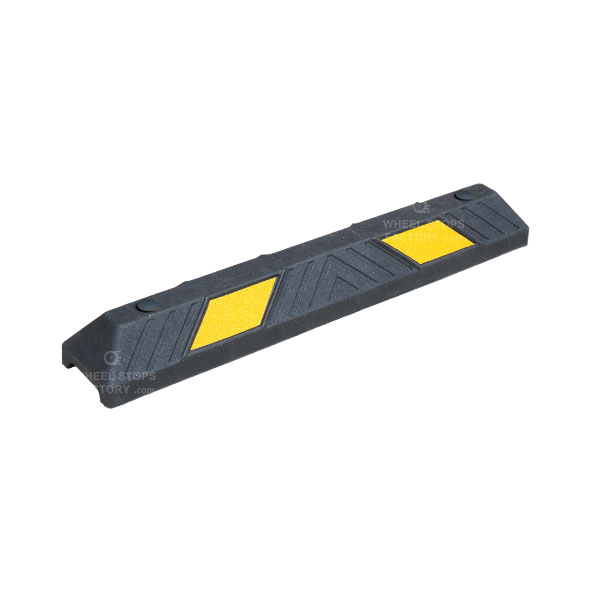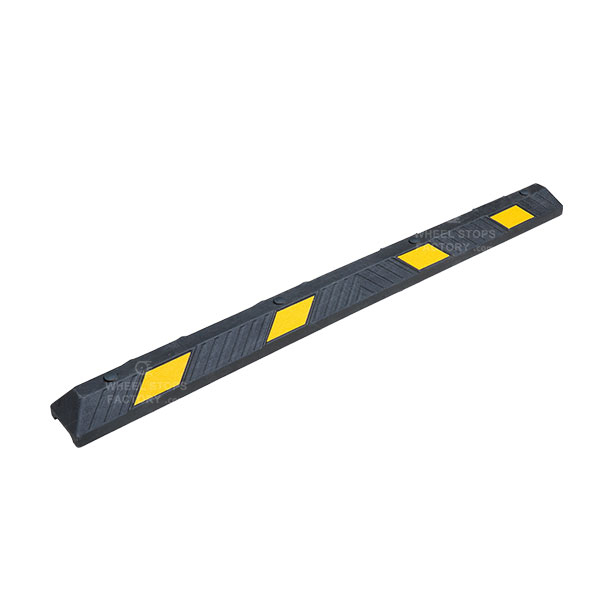How much does a Wheel Stopper cost?
There are many important parking management and traffic safety tools, such as wheel stoppers, speed bumps, speed checkers, bollards, speed humps, and bike racks or even wheel chocks. They make public parking spots organised, safe, and well-maintained. Investing in these tools for once can save you a lot of trouble in the future.
All these tools are produced in many different forms providing users with multiple options. Their features, designs, materials, and other factors influence their cost differently.
If you are interested in buying a wheel stop for your visitor parking area, this article will tell you what its price could be and which elements determine its cost.
What is the wheel stopper's average price?
A variety of wheel stops are used in parking areas. Some of their examples are:
- Truck wheel stop
- Trailer parking block
- Motorcycle wheel stop
- Car wheel stopper
- Sportbike parking block
All these wheel stops have distinctive costs determined by many factors, such as their sizes, construction materials, weight-bearing capacity, and additional features.
If you keep all these factors aside, you can say that the average price of a wheel stop generally ranges from £30 to £60.
Let’s talk about different factors that affect the cost of a wheel stopper used in street parking, accessible parking, green parking or handicapped parking garages.
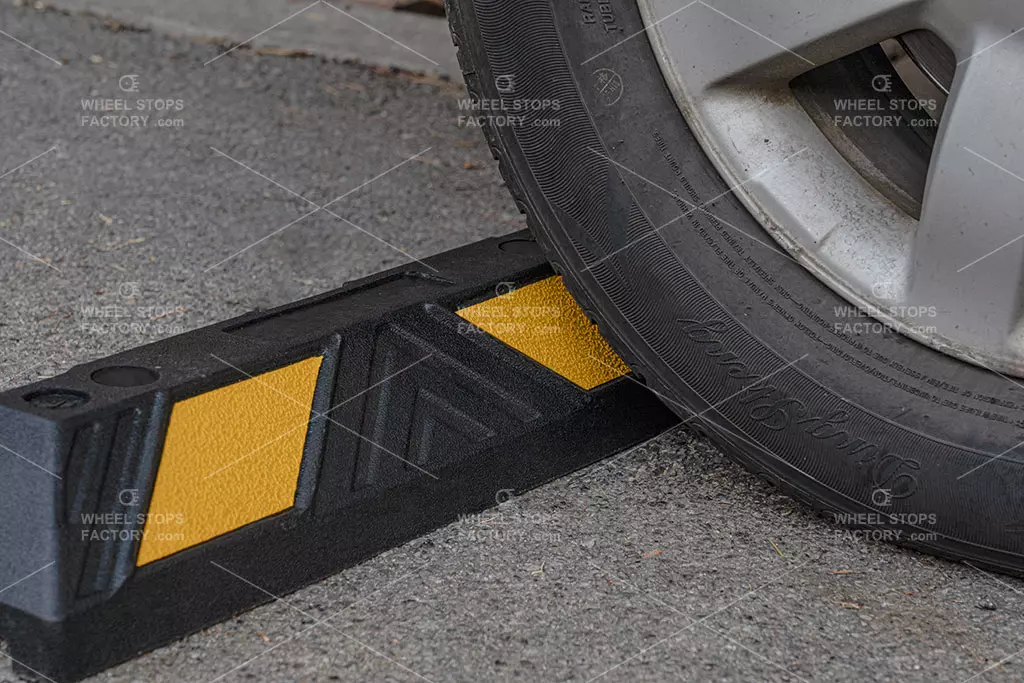
The price varies according to the dimensions
Prices of all pedestrian safety tools, including a polyurethane speed ramp, rubber wheel chock, parking garage signage, light-duty parking brake, and speed hump, are greatly influenced by their sizes.
It is needless to say that tools of larger size cost more than those of smaller size. It is because more material and effort are consumed for their construction.
Large tools are also heavy, particularly if they are made of concrete or metal. You may need to rent a forklift to transport them in your garage parking from place to place. Therefore, you should also consider their transportation cost while estimating their purchase and installation costs.
The price varies according to the material
Various materials are used to manufacture wheel stops, including industrial rubber, polypropylene, galvanised steel, recycled plastic, moulded urethane, and concrete.
All these materials are beneficial in their own way. For instance, rubber is flexible and can be moulded in any shape, plastic can have numerous colours, concrete is very tough, and steel can withstand heavy weights.
Of all these materials, rubber, plastic, and rubber-plastic blends have the most economical rate, while concrete and metal are slightly pricey.
QUICK
CONTACT
Feel free to contact us now. Our team will
always be happy to help you!
The most cost-effective material – Plastic-Rubber composite
Rubber and plastic are commonly available materials that people use to make daily parking wheel chocks, race ramps, collapsible traffic cones, levelling blocks, and many other similar tools.
They are globally synthesised because they are cost-effective, multi-functional, and easy to handle. Recently, people have started making their blends by mixing a fixed amount of plastic and rubber to formulate rubber-plastic blends of varying concentrations for parking wheel stops.
These blends give parking curb stops characteristics of both plastic and rubber. They have higher tensile strength, better flexibility, and possess numerous advantageous properties.
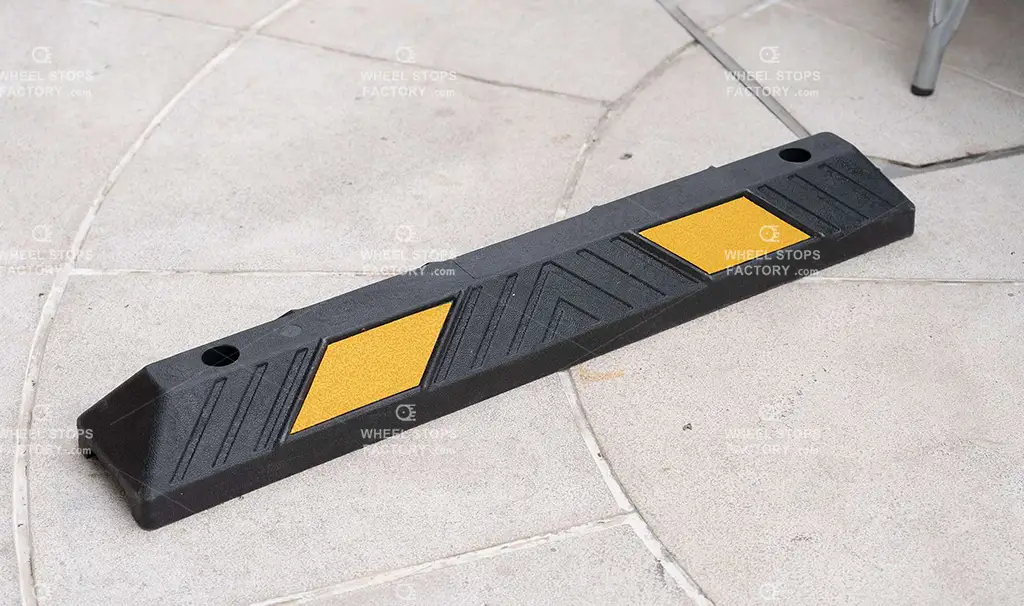
The price varies depending on wheel stop features
Another factor that influences wheel stop price is the characteristics of a wheel stop. You might be thinking about what additional characteristics they have. Here are some examples.
Reflectors: Wheel stops normally have a dark colour, which may make it harder for drivers to detect them at night. Therefore, their manufacturers use yellow reflective tapes or plates that shine when light fall on them to make these tools more visible. This way, parking stops become prominent and highly visible to drivers even when they are far away.
Wheel stops that have reflectors cost more than wheel stops that don’t have them.
Fixings: Some parking block brands send fixing materials with their parking blocks so the user can save the time and effort of buying fixing accessories. Such wheel stops may have a slightly higher price compared to those that don’t come with fixings like bolts.
Customisation: You can request parking curb customisation to enhance the appeal and performance of your campus parking, airport parking, monthly parking, metered parking, vehicle parking, or disabled parking lots.
Customisation allows you to get a parking kerb of your desired size or get your company’s logo printed. You can also request a different parking curb stop colour based on your needs. Customising a product takes extra effort and sometimes requires more material. That is why customised car park bump stops may cost slightly more than ready-made products.
The price varies from manufacturer to manufacturer
There are many parking kerb wheel stop manufacturing companies in the world. They produce tools like stabilising benches, parking facility cushions, powder-coated bollards, wheel locks, and reinforced rubber bumps. They aim to increase vehicular and pedestrian safety with their tools.
However, the prices of these tools vary from manufacturer to manufacturer. This is because their construction techniques, materials, and products vary in quality. Some manufacturers sell substandard products at high costs, while some sell good-quality products at reasonable prices.
You must compare products, prices, durability, and online reviews of different companies before buying car park bump stops for your electric vehicle charging stations, perpendicular parking facilities, hourly parking lots, or metered parking spaces.
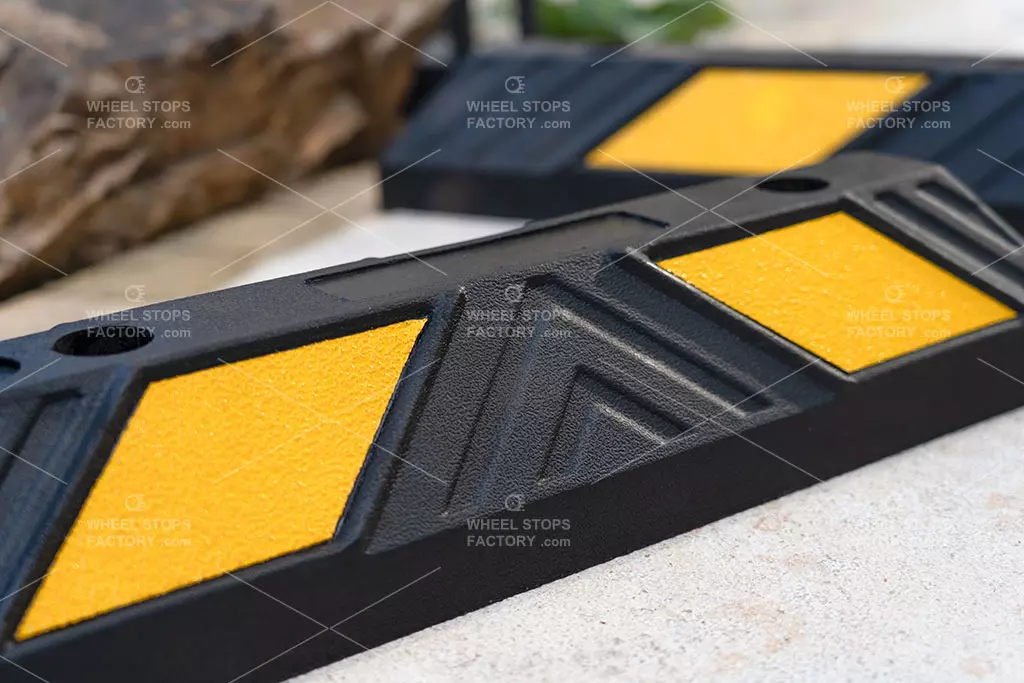
Why should you install wheel stoppers?
Wheel stoppers can be beneficial for an hourly parking structure, short-term parking area, car parking space, or free parking space.
Here are some reasons you should have them in your additional parking space.
- They diminish the number of accidents in reserved parking areas by informing drivers about the parking space limit. They help prevent collisions between parked vehicles by keeping vehicles in their designated lanes.
- They help protect and preserve parking property, signposts, no-parking signs, traffic-control signs, and objects in a parking spot, asphalt driveway, sidewalk, pavement, or car-park spot.
- They improve the appearance, functionality and reputation of a parking area by adding more safety elements.
- Car stops are easy-to-install and easy-to-handle tools that keep your parking area well-structured and organised. You will have to invest in them for once; they will work for years if they are maintained from time to time.
- They are available for different vehicles, including goods transporting trucks, buses, trailers, loading/unloading forklifts, patented cars, and retractable motorcycles. So, you can use different wheel stops to meet the parking needs of different vehicles.
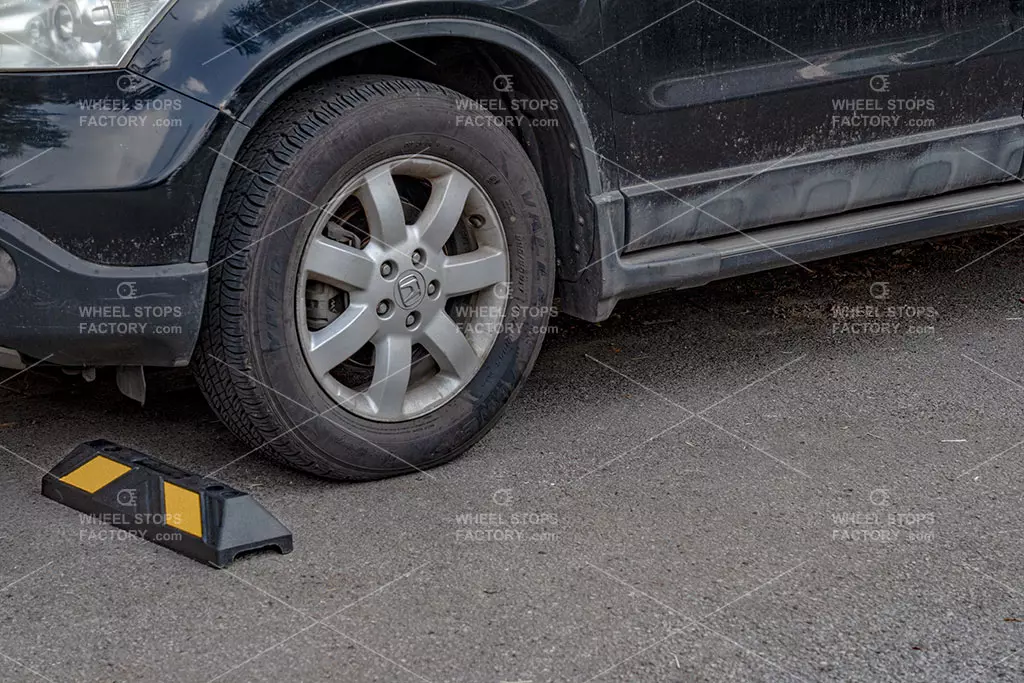
Conclusion
A parking curb stop bolted speed bumper, speed stabiliser, car truck bump, gravel bollard, or laminated barricade is used in various parking options to offer pedestrian and vehicular safety.
Wheel stops are constructed in different designs with different materials by different manufacturers. Hence, their prices vary from one company to the other. Their main price-determining factors are dimension, material, additional features, and brand.
Before choosing one, you should compare reviews, rates, and products of different companies. You should select a wheel stop company that sells high-quality customised products at pocket-friendly rates. Also, remember wheel stop installation and transportation fees while estimating their total cost.
QUICK
CONTACT
Feel free to contact us now. Our team will
always be happy to help you!
For further information, we recommend you check the following pages:


